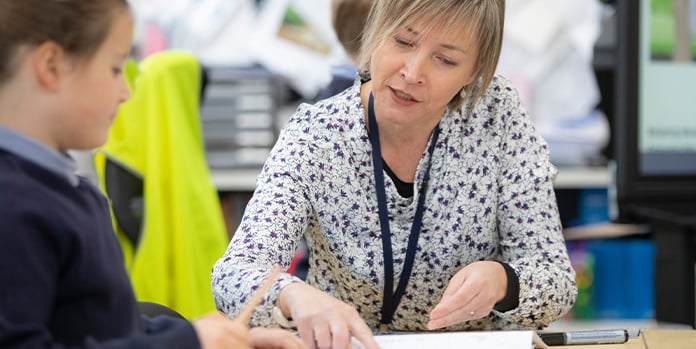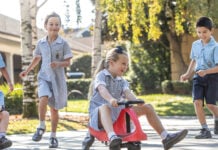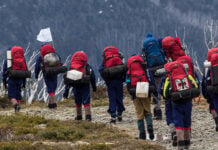Natalie Schneider is a highly regarded teacher at Melbourne Grammar School, yet teaching wasn’t the first career she embarked upon.
A love of the outdoors inspired Natalie to initially complete a Bachelor of Forest Science (Hons) at the University of Melbourne post secondary school.
“At that time I wanted a job where I could be outdoors and which would also use my scientific skills,” explains Natalie about her forestry career, which took her to Queensland and Tasmania for more than a decade.
While working in Tasmania establishing new forestry plantations, Natalie particularly enjoyed the community consultation and educational aspect of her role. When she looked to return to the workforce after having her three children, she decided to explore a career in education.
Destined to be a teacher
“My mum was a teacher, so it was in the family,” Natalie says. “Maybe I was always destined to be a teacher. Once I was established in a school with my own class, I really felt that it was what I was meant to do.”
Natalie found her new career to be challenging (“I don’t think I gave my mum the credit she deserved – I am amazed every day with what teaching involves,” she says) and rewarding.
After gaining experience at a number of schools, Natalie joined the team at Grimwade House in 2021 where she says she felt instantly at home. “The teachers work so collaboratively here and the structure and teaching style work well,” says Natalie. “However, most importantly to me, I love how the students tend to be so curious and genuinely interested in learning.”
Making a difference
“What I love about teaching at Junior Primary level is that it can make a difference,” says Natalie, who currently teaches Year 1. “When you see the children working hard at something challenging – to see that lightbulb moment where they get it – it’s incredible knowing you played a part in that.”
Teaching young students comes with the responsibility of establishing behavioural attributes such as respect, resilience and persistence. It also provides Natalie with the opportunity to share her love of the environment, as well as important sustainability messages, to her young pupils.
“As a class we talk about sustainability, and that’s a very important part of how we treat the classroom resources so we don’t have to continually replace them,” she says. “We recycle, use recycled paper, compost and look after our classroom plants. I want my students to both learn how to treat each other and our environment.”



